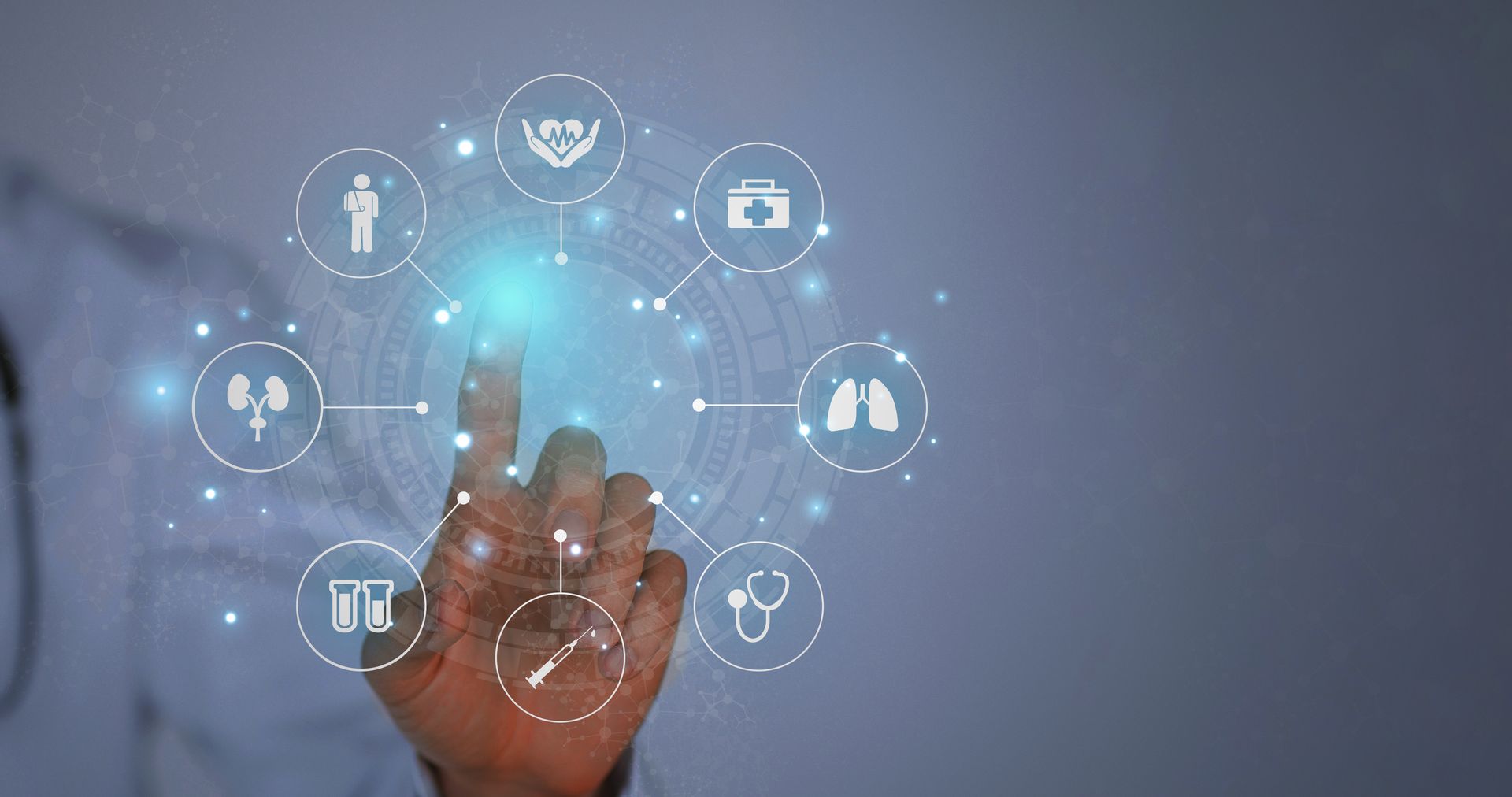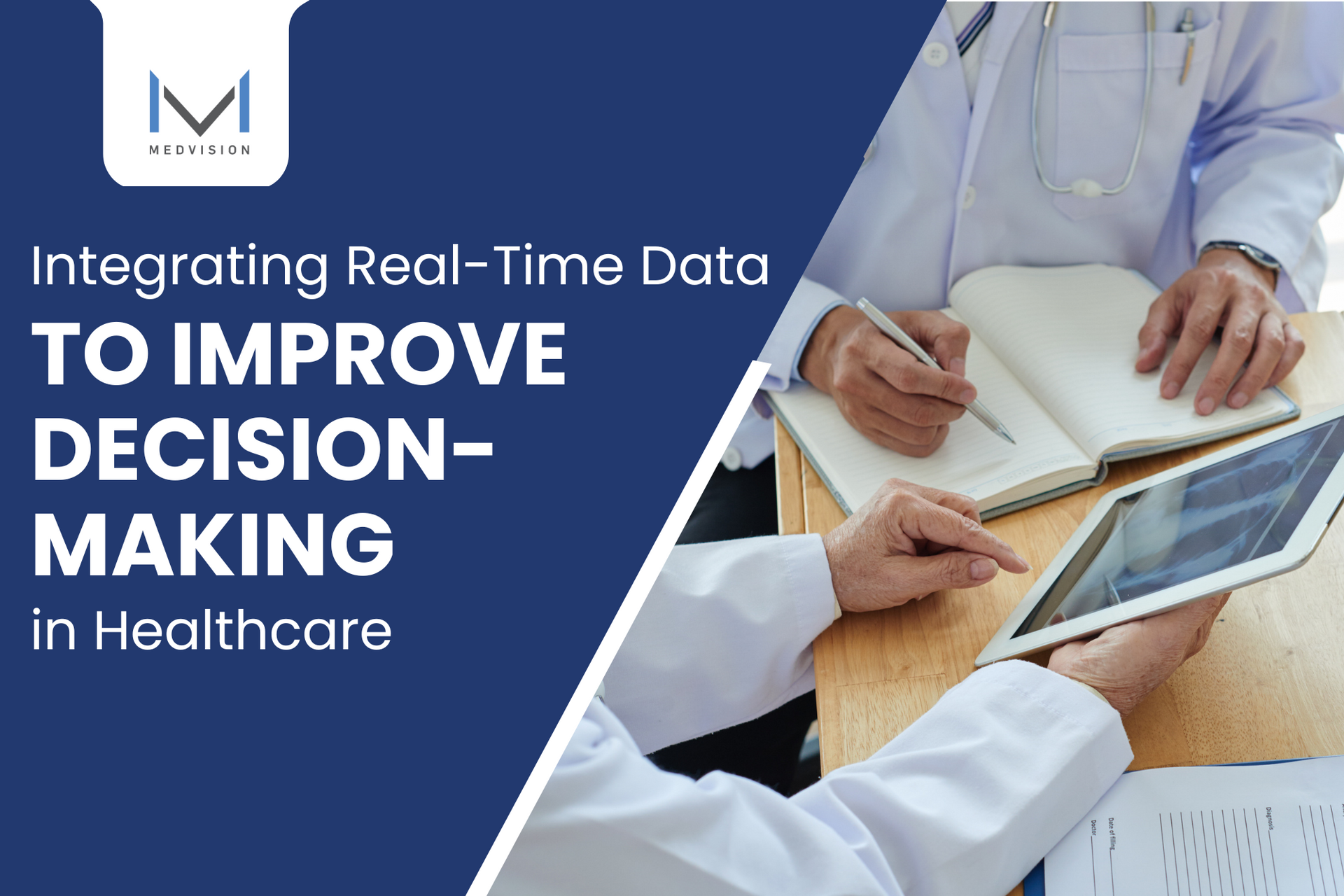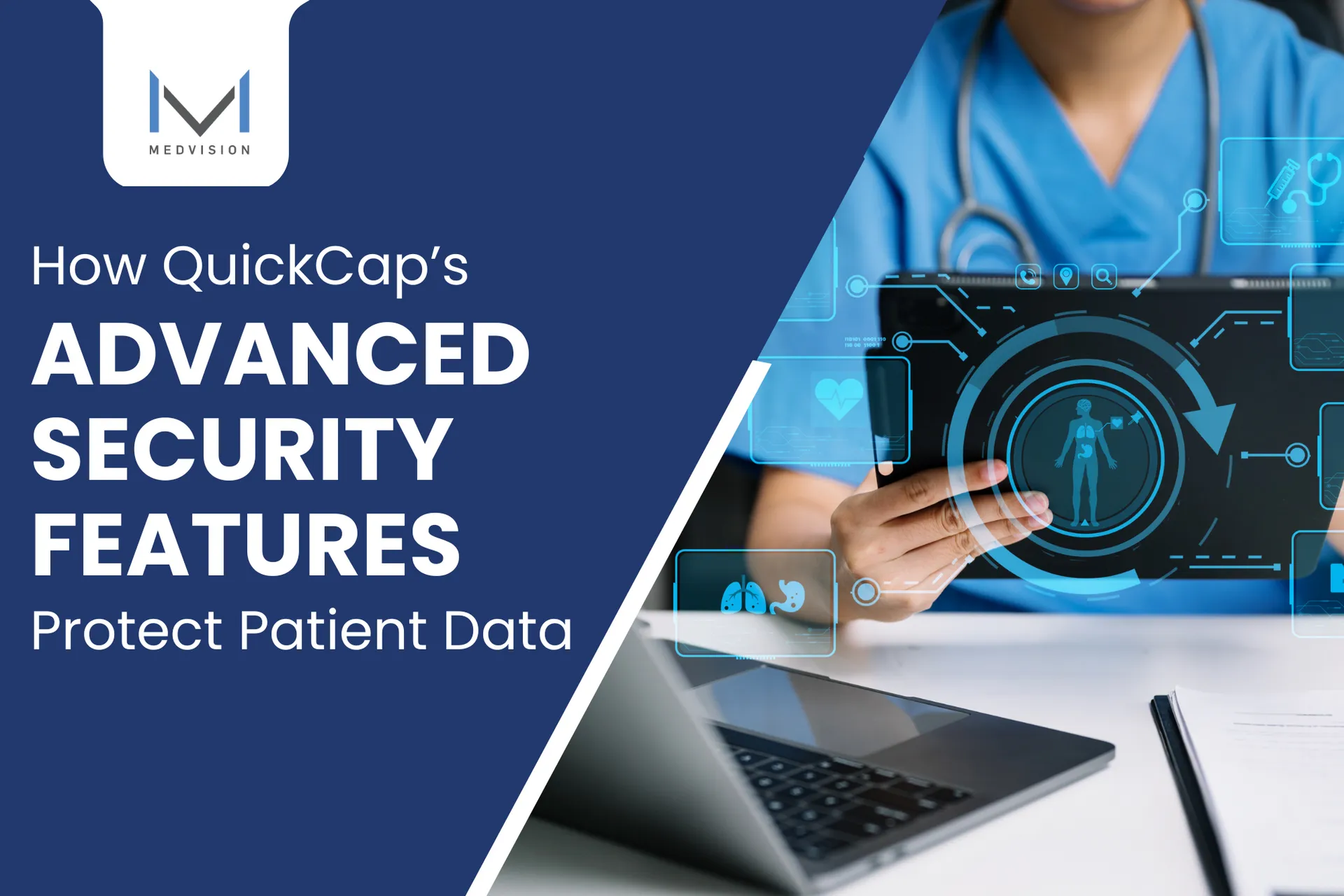Driving Innovation: Why Migrating from Legacy Platforms is Crucial

Technology is transforming all sectors, and healthcare is no different. Yet, outdated legacy platforms still bog down many healthcare organizations. These outdated systems hinder progress and prevent providers from keeping up with the demands of a rapidly evolving industry.
These systems, long relied upon by health plans, are often plagued by limited functionality, cumbersome interfaces, and an inability to leverage valuable information at their disposal. As a result, healthcare providers often face significant challenges in delivering efficient and effective patient care.
There is a pressing need to migrate from legacy systems to modern technology to embrace advanced solutions and frameworks that empower patient care and providers. This approach allows healthcare providers to harness innovative solutions like QuickCap v7.0 by MedVision.
QuickCap empowers patients and providers with advanced capabilities to optimize data management, improve decision-making processes, and ultimately deliver better patient outcomes, acting as a catalyst for innovation in healthcare.
Redefine Healthcare with MedVision
Venture with us as we navigate the path toward healthcare excellence, beginning with the crucial step of migrating from legacy platforms.
Understanding Legacy Platforms
Legacy platforms are outdated systems that were once state-of-the-art but have since become obsolete. Despite their limitations, many healthcare providers continue to use them, often due to familiarity and comfort with these long-standing systems.
According to a
2021 HIMSS Survey, about 73% of healthcare providers still have legacy operating systems. These platforms, though once revolutionary, now present significant challenges to healthcare organizations striving to deliver efficient and high-quality care in today's digital age.
Legacy platforms persist in the healthcare sector for several reasons:
- Historical Investment: Many healthcare organizations have historically invested heavily in these systems, both financially and in terms of time and resources.
- Reluctance to Transition: Despite their outdated nature, many people often hesitate to transition away from legacy platforms due to the substantial investment already made.
- Complexity of Operations: The complexity of healthcare operations and stringent regulatory requirements can make the data migration process to newer systems a daunting task for many organizations.
The drawbacks of legacy platforms are increasingly apparent in today's healthcare environment. These challenges include:
- Outdated Technology: These platforms on antiquated technology, these platforms often suffer from slow performance, frequent downtime, and compatibility issues with newer software and hardware.
- Inefficient Processes: Having inefficient processes means having obsolete workflows, which leads to operational inefficiencies and poor resource utilization.
- Limited Flexibility: The rigid nature of these systems hinders adaptation to evolving healthcare needs.
- Security Vulnerabilities: Legacy platforms lack robust security features due to inadequate security measures, making them vulnerable to cyber threats and data breaches.
- Lack of Interoperability: These systems struggle to share data effectively with other platforms, impeding information exchange.
While they may have served their purpose in the past, their outdated technology and inefficient processes are no longer sustainable in today's fast-paced and data-driven healthcare environment.
The Need for Change
Healthcare is rapidly evolving, and sticking with outdated legacy platforms is no longer an option. Several factors drive the urgency for change:
- Increasing Demand for Advanced Functionalities
Healthcare providers face pressure to adopt advanced tools like telehealth and remote monitoring. Legacy platforms often lack these capabilities. - Scalability
Healthcare organizations need technology that can grow with them. Legacy platforms may struggle to handle increasing demands, leading to performance issues. - Data Analytics and Insights
Big data is vital for improving healthcare decision-making. Legacy platforms often lack the tools to analyze and leverage data effectively, limiting innovation. - Addressing Emerging Challenges
Healthcare constantly faces new challenges, like outbreaks, pandemics, and rising costs. Technology helps by enabling remote care and improving operational efficiency. - Cybersecurity Concerns
Cyber threats present a significant risk to healthcare organizations. Legacy platforms may lack robust security features, leaving patient data vulnerable to breaches.
The need for advancements is evident and crucial in healthcare. Legacy platforms are no longer equipped to meet the demands of modern healthcare delivery, and organizations must adapt innovative solutions to stay competitive and provide high-quality care.
Advancements Lead to Innovation
Migrating from legacy platforms to modern solutions offers numerous benefits for healthcare organizations, particularly within the framework of the ACO REACH program. Here are some of the key benefits:
- Improved Efficiency: Advanced technology optimizes processes and automates tasks, reducing healthcare staff's workload and enhancing overall efficiency.
- Enhanced Patient Care:
Innovative solutions provide advanced functionalities such as telehealth, remote monitoring, and personalized medicine, enabling the delivery of higher-quality care.
- Better Data Management: Contemporary platforms offer potent data analytics tools for gathering, analyzing, and leveraging data effectively, leading to informed decision-making and improved outcomes.
- Increased Interoperability: Next-generation solutions are interoperable, facilitating seamless data exchange and communication between systems, thus enhancing care coordination and patient care.
- AI as the Powerhouse: Modern platforms incorporate artificial intelligence to analyze vast data, predict patient outcomes, personalize treatments, and streamline administrative tasks, leading to more precise and efficient care.
- Cost Savings: While there may be initial investment costs, modern solutions result in long-term savings through improved efficiency, error reduction, and optimized resource allocation.
The transition to modern technology catalyzes a transformative shift in care delivery. Embracing these advances can boost operational efficiency, improve patient care quality, and unlock new opportunities for data-driven decisions.
Overcoming Limitations with QuickCap

Legacy platforms can only go so far, but with updated and improved systems, you can incorporate innovative tools to propel your healthcare organization forward.
QuickCap v7.0 by MedVision is an advanced healthcare administration software that supports value-based care models, including the
ACO REACH Model. Its advanced capabilities and user-friendly interface address legacy systems' inefficiencies and promote innovative, data-driven approaches.
- Data Integration: Streamlining data from various sources for better decision-making.
- Advanced Analytics: Providing insights to improve patient care and operational efficiency.
- Patient Engagement Tools: Facilitating better communication and care coordination.
- Support for Value-Based Care: Enabling healthcare administration programs and organizations to manage risk and improve financial performance under value-based payment models
By transitioning to QuickCap v7.0, providers and organizations can meet the industry's evolving demands while improving patient outcomes and operational efficiency.
In the face of ongoing challenges and opportunities, healthcare providers must embrace advanced solutions like QuickCap v7.0. This transition is not just about staying competitive; it's about delivering superior patient care and driving sustainable growth in the healthcare industry.
Drive Innovation with QuickCap
Recently published articles
Keep in touch
Subscribe to get the latest update
Than you!
You have successfully subscribe to our blog updtes!
Please try again later
Trending topics
Upcoming events and company news
Connected Healthcare
SOC Certification Achievement
MedVision has successfully met the criteria outlined in the SOC (System and Organization Controls) audit for service organizations. This certification demonstrates MedVision’s adherence to rigorous standards for security, availability, processing integrity, confidentiality, and privacy.
As a service provider managing sensitive data and overseeing critical functions on behalf of clients, this certification underscores MedVision’s commitment to maintaining high standards of operational excellence and data security.
HITRUST Risk-Based 2-Year Certification Achiever
The Health Information Trust (HITRUST) is a standards organization dedicated to security, privacy, and risk management. They developed the HITRUST Common Security Framework (CSF), which assists organizations in maintaining a comprehensive and secure approach to HIPAA compliance and managing risks. HITRUST is widely recognized as the benchmark in data security and privacy.
Certified Member of HCAA
The Health Care Administrators Association is the nation's largest nonprofit trade association for third-party administrators, stop loss insurance carriers, managing general underwriters, audit firms, medical managers, technology organizations, pharmacy benefit managers, brokers/agents, human resource managers, and health care consultants. HCAA has spearheaded the change of self-funding for more than 35 years.
Share and post page directly to social media.
Ready to get started?
Call us @ 847 - 222 - 1006
LINKS
GET IN TOUCH
3233 N. Arlington Heights Rd.,
Suite 307, Arlington Heights, IL 60004
Phone:
847-222-1006
Fax: 847-222-1066
STAY INFORMED
Subscribe to our blog updates!
Blog Subscription
Than you!
You have successfully subscribe to our blog updates!
Oops, there was an error in sending your message. Please try again later
LINKS
GET IN TOUCH
3233 N. Arlington Heights Rd.,
Suite 307, Arlington Heights, IL 60004
Phone :
847-222-1006
Fax :
847-222-1066
STAY INFORMED
Subscribe to our blog updates!
Medvision | All Rights Reserved.















